Research by Each Organization
RESEARCH ORGANIZATION
-
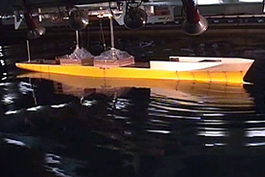
Fluids Engineering & Hull Design Department
Reducing GHG emissions from ships and realizing green innovation, this department is conducting R & D based on ship fluid dynamics. This department is engaging in research on ship performance evaluation in actual seas, fluid control to improve hull form, high-efficiency energy-saving devices, and advanced tank testing technology.
-
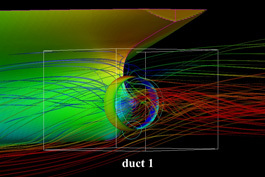
Fluids Engineering & Ship Performance Evaluation Department
This department conducts research aimed at the assessment/improvement of the performance (propulsion, maneuverability, seakeeping, stability, etc.) of vessels at sea. This department also contributes to the shipping safety by providing technical support for investigations to determine the cause of marine accidents and to create international standards. In addition, this department is also developing world-leading and highly reliable CFD software for ship hydrodynamics, which is available mainly for domestic shipyards.
-
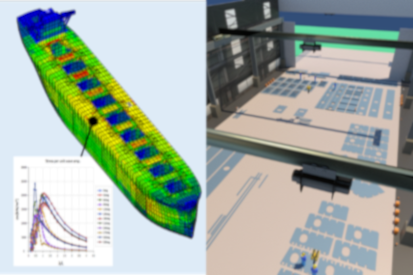
Structural & Industrial System Engineering Department
This department contributes to the advancement of safety assessment methods for hull structures. The research is mainly concerned with estimating wave loads acting on hulls and the simulation of structural response and collapse. This department also conducts research on material properties such as corrosion and fatigue strength. As part of the above research, This department does various experiments such as tank tests, structural collapse tests, and material tests.
In addition, this department is also focusing on manufacturing engineering for productivity and quality improvement in maritime industries. -
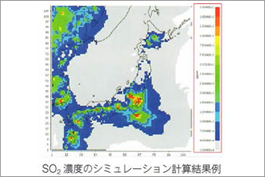
Marine Environment & Engine System Department
This department conducts research on environmental preservation related to ships and marine structures in the following areas:
• Upgrading of simulation technologies that form the basis for realizing a rational environmental regulation system for the oceans and the atmosphere.
• Development and evaluation of various technologies to reduce emissions of CO2, NOx, SOx, PM, and other pollutants from ships.
In addition, This department is introducing new marine gas engine testing equipment to start leading research on future fuel conversions. -
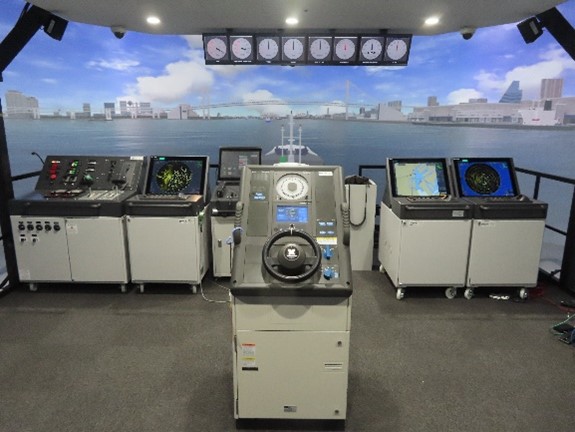
Knowlege & Data System Department
This department is involved in research on improving the safety of navigation with a comprehensive simulation system, and on the sophistication of logistics systems.
In addition, research is also carried out into fundamental technologies such as measurement technology and various sensor technologies. -
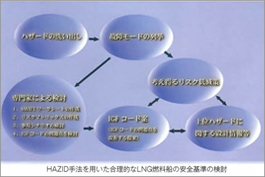
Maritime Risk Assessment Department
This department engages in risk assessments of the maritime field, including Formal Safety Assessment (FSA) for international regulations establishment, risk assessment for newly developed systems, and improvement of marine traffic systems. This department also conducts research for the safe and secured carriage of hazardous cargo, including radioactive materials, using advanced techniques such as risk/reliability analysis and hazardous material diffusion simulation.
-
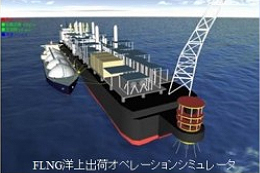
This department is involved with technological development and safety assessment for the exploitation/production of offshore natural resources such as oil, gas, and minerals. This department has advanced model testing technology, numerical simulation technology, and data measurement and analysis technologies for experiments in the actual sea.
Based on the above technologies, this department is working on research and development to provide technological solutions for ocean development in the frontier seas, such as deep water and ice-covered areas. -
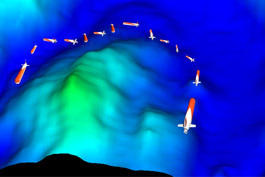
Offshore Advanced Technology Department
This department develops fundamental technologies related to marine renewable energies, such as electric generation by floating offshore wind turbines, wave energy converters, and marine current energy converters. In addition, this department examines safety evaluation methods related to these facilities and equipment for marine renewable energy. Moreover, this department conducts R & D on AUVs (Autonomous Underwater Vehicles) for exploration of seafloor resources, etc., and develops surveying and measurement methods with robots to promote the advancement of undersea operations.
-
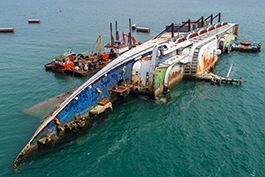
Marine Accident Analysis Center (MAAC)
This center contributes to the causes investigation of marine accidents by analyzing information promptly in close collaboration with the Japan Transportation Safety Board (JTSB), the Maritime Bureau, and other organizations in the Ministry of Land, Infrastructure, Transport and Tourism. For severe accidents, this center further contributes by drawing up preventive measures by reproducing accident situations using the Bridge Simulator for Navigational Risk Research, Actual Sea Model Basin, and structural analysis tools.
-
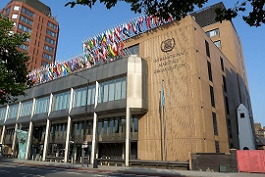
Center for International Cooperation
This center strives to support the development and revision of international regulations and standards managed by the International Maritime Organization (IMO), the International Atomic Energy Agency (IAEA), the International Organization for Standardization (ISO), and other international organizations.
-
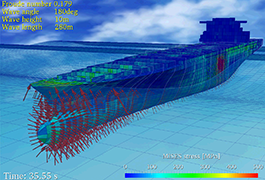
This project team is promoting the development and social implementation of digital twin technology for ship hulls, digital twin technology for marine main engines, digital twin technology for ship operations, digital platform technology for ship design, and digital platform technology for ship construction, which will be key technologies in realizing the digital transformation of the maritime industry.
-
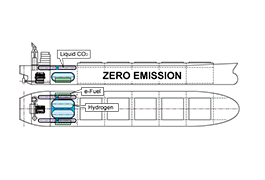
The IMO's GHG reduction target is to improve overall international shipping fuel efficiency by at least 40% by 2030, and by 2050, total GHG emissions must be reduced by at least 50%. This project team will develop GHG reduction technologies from the viewpoints of hydrodynamics, alternative fuels, and engine efficiency. This project team developed a tool for estimating total GHG emissions based on demand forecasts for maritime logistics to examine strategies. By developing business models, this project team is progressing the social implementation of its research results.
-
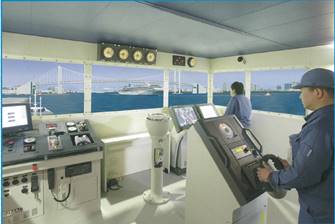
The Ministry of Land, Infrastructure, Transport and Tourism (MLIT) aims to realize autonomous ships by 2025. To contribute to the aim, NMRI has established this project team to ensure safety evaluation technologies for autonomous ships. This project team is developing a new fast-time simulation system and a new navigation-risk simulator to evaluate the safety of autonomous ships. This project team's crucial missions are automatic berthing/leaving technology developments and machine-vision technology for vessels. This project team aims to implement the developed technologies in practice and to realize autonomous ships by 2025. This project team thinks it is essential to couple a farsighted strategy with an appropriate business model.
-
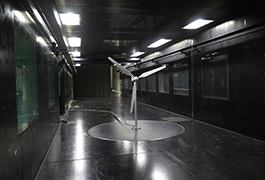
Our project team researches and develops solutions to reduce the time and costs associated with offshore wind energy throughout its entire value chain. We propose practical technical solutions that both support government offshore wind energy policies and address the specific R&D challenges faced by industry partners.
-
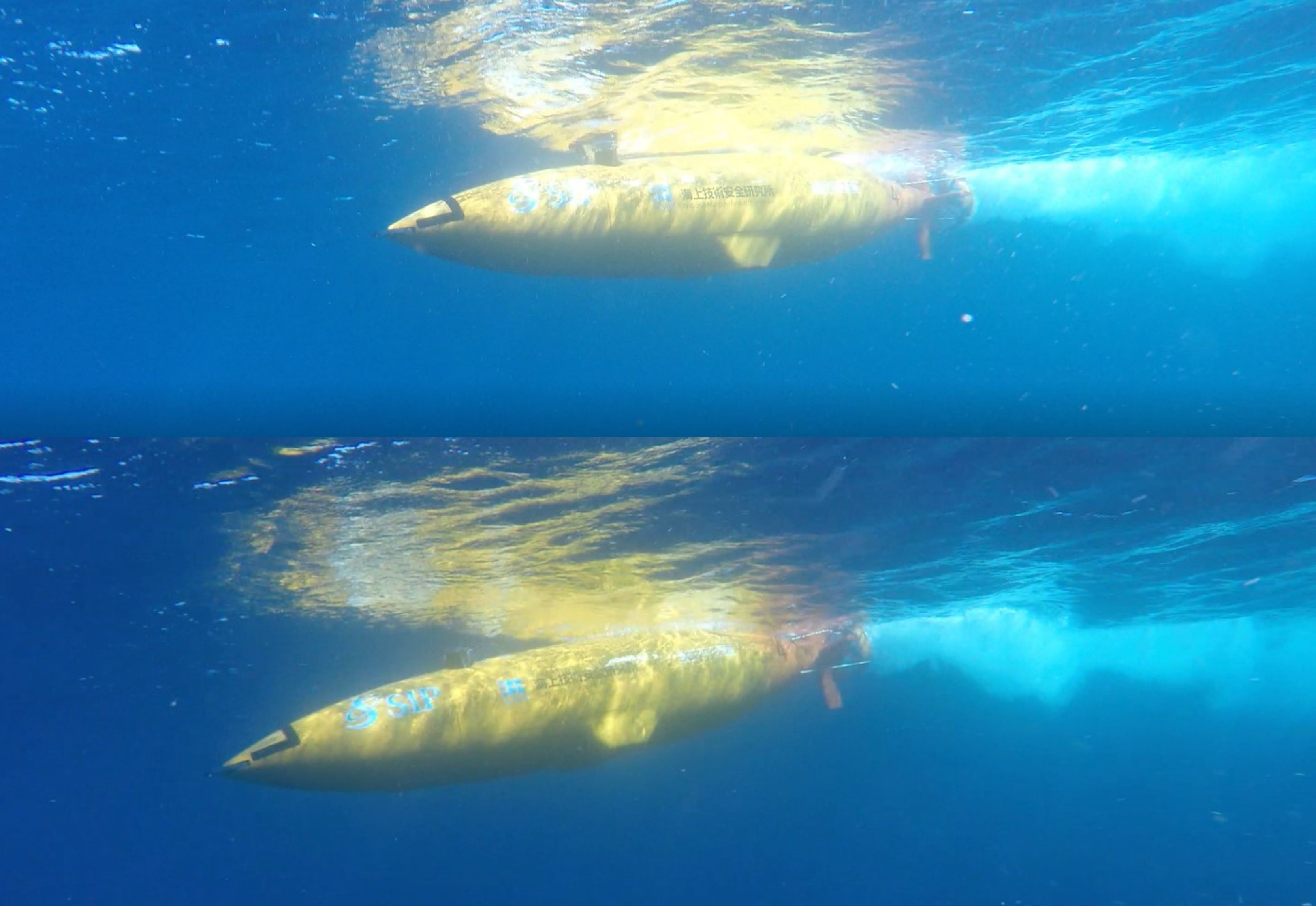
Next-Generation Unmanned Ocean Vehicle PT
As a next-generation mobile platform for ocean utilization and development, the utilization of unmanned ocean vehicles such as AUVs (Autonomous Underwater Vehicles) is advancing worldwide. In Japan, to support the related research and development, an AUV Strategy Project Team overseeing unmanned ocean vehicle strategies has been established within the Advisory Council of the Integrated Maritime Policy Headquarters, the Japanese government. This project team aims to support such national efforts at the field level and to contribute to society by carrying out leading research and development to be at the forefront globally.
-
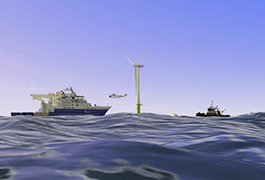
Safety Operation Office of Dynamic Positioning System
The use of vessels equipped with Dynamic Positioning (DP) systems, such as SEP, is expected to increase in the future for the development of renewable energy sources, such as offshore wind power generation, as well as for the exploration of marine resources like seabed minerals and methane hydrates in Japan.
Therefore, this office will contribute to the safe operation of the DP systems by collecting and analyzing information on safety, environmental protection, and accidents. Additionally, this office will handle emergencies unique to DP vessels with the DP simulator installed at NMRI. -
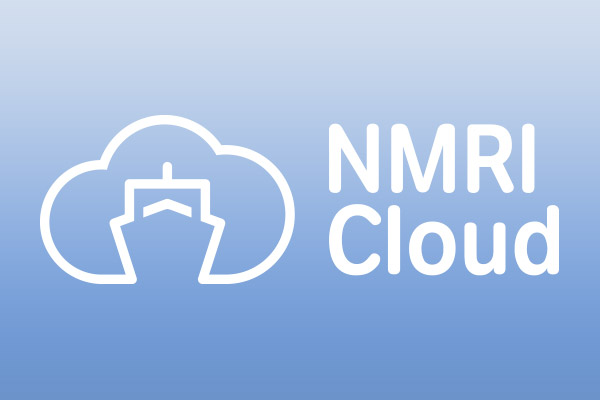
Cloud Platform Operations Office
In order to enhance the competitiveness of the Japanese maritime/offshore sector, open innovation in the maritime/offshore domain must be accelerated. NMRI is operating and developing its "NMRI Cloud" platform to fulfill these needs. The NMRI Cloud offers the industry a remarkably practical and expandable solution in the domain by leveraging cloud computing technology and experimental data gathered from the NMRI's facilities and advanced simulation technology of NMRI.
